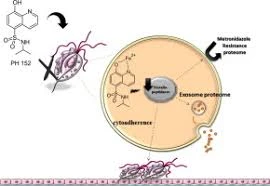
12-р сар . 24, 2024 15:47 Back to list
china necrotic enteritis in poultry
Necrotic Enteritis in Poultry in China An Overview
Necrotic enteritis (NE) is a significant poultry disease causing substantial economic losses in the poultry industry worldwide. In recent years, China has seen a rising incidence of necrotic enteritis, particularly in broiler chickens. This article aims to provide a comprehensive overview of necrotic enteritis in poultry in China, discussing its causes, symptoms, economic impact, and prevention strategies.
Understanding Necrotic Enteritis
Necrotic enteritis is primarily caused by the bacterium *Clostridium perfringens*, which is a normal inhabitant of the gut flora in poultry. Under certain conditions, this bacterium can proliferate and produce toxins that lead to inflammation and necrosis of the intestinal tissues. Various factors contribute to the outbreak of this disease, including changes in diet, antibiotic usage, stress, and management practices.
Causes of Necrotic Enteritis in China
In the context of China, intensive poultry farming practices have significantly exacerbated the situation. The increasing demand for chicken meat, coupled with higher stocking densities, creates an environment where stress and poor gut health can flourish. Additionally, the withdrawal of certain antibiotics in feed in response to public health concerns has led to a noticeable rise in NE cases. The shift toward antibiotic-free production, while beneficial for public health, poses challenges in maintaining gut health and controlling pathogenic bacteria like *C. perfringens*.
Symptoms of Necrotic Enteritis
The symptoms of necrotic enteritis in poultry can vary depending on the severity of the infection. Common signs include
- Sudden onset of diarrhea, often described as yellowish or watery. - A decrease in feed consumption. - Poor weight gain or weight loss. - Lethargy and depression in affected birds. - In more severe cases, mortality can occur due to systemic effects of the infection.
Producers often observe a sudden increase in deaths, particularly in birds at the grower phase, which can lead to dramatic production losses if not addressed promptly.
Economic Impact
china necrotic enteritis in poultry

The economic implications of necrotic enteritis in the poultry industry are staggering. In China, where poultry farming is a critical component of the agricultural economy, NE has led to increased veterinary costs, loss of production, and, in severe cases, the culling of flocks. Recent estimates suggest that necrotic enteritis can result in losses of up to 20% in affected flocks, translating to millions of dollars annually. The challenge for farmers lies not only in managing and treating this disease but also in ensuring the overall health of their flocks to prevent recurrences.
Prevention and Control Strategies
Effective management and prevention of necrotic enteritis require a multifaceted approach. The following strategies can help mitigate the risk of outbreaks
1. Improved Nutrition Ensuring a balanced diet that supports gut health is crucial. The inclusion of prebiotics and probiotics can enhance intestinal flora and competitive exclusion of pathogens.
2. Biosecurity Measures Implementing strict biosecurity protocols, such as controlling farm traffic and maintaining cleanliness, can help prevent the introduction and spread of infectious agents.
3. Vaccination While there is currently no specific vaccine for necrotic enteritis, vaccines for other diseases can help alleviate stress on birds, indirectly reducing the risk of NE.
4. Monitoring and Early Detection Regular monitoring of flock health and implementing early detection protocols can aid in quick intervention and reduce the impact of NE outbreaks.
5. Education and Training Providing training for farm workers on best management practices related to nutrition, biosecurity, and disease monitoring can play a vital role in preventing necrotic enteritis.
Conclusion
Necrotic enteritis remains a serious challenge for the poultry industry in China. The increasing prevalence of this disease underscores the need for improved management practices and proactive strategies to safeguard poultry health. By focusing on nutrition, biosecurity, early detection, and worker education, the poultry industry can reduce the incidence of necrotic enteritis and its associated economic burdens, ultimately leading to healthier flocks and more sustainable poultry farming in China.
-
Top Hemoglobinuria Manufacturer & Supplier Reliable Hemoglobinuria Factory Solutions
NewsJun.24,2025
-
Premium Honeysuckle Products - Leading Honeysuckle Manufacturer & Supplier Factory
NewsJun.10,2025
-
Pulmonary Edema Solutions from Leading Manufacturer & Supplier Reliable Factory Price
NewsJun.10,2025
-
Red Eyes - Leading Red Eyes Manufacturer & Supplier, Premium Quality Factory Price
NewsJun.10,2025
-
Broiler Ascites Syndrome Solutions Top Manufacturers
NewsJun.10,2025
-
Premium Amoxicillin Suppliers Reliable Biomox Mexican Factories
NewsJun.10,2025




